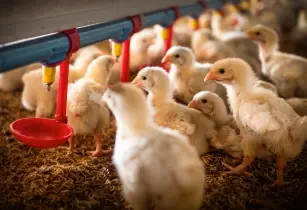The revamped Presidential Rural Poultry Scheme in Zimbabwe will see as many as 3 million households receiving 10 indigenous poultry chicks each, as part of a targeted empowerment programme
The scheme, which is set to be launched this month, requires rural households to apply their knowledge in rearing indigenous poultry. The chicks, which will be more than 30 million, will be 10-weeks-old. Households will also get chicken mesh and stress packs.
In an interview with The Sunday Mail, permanent secretary in the Ministry of Lands, Agriculture, Fisheries, Water and Rural Development Dr John Basera, said the programme was part of preparations for the 2022-23 season.
"In the report, we pointed out that rural households used to keep their road-runners for meat and eggs to supplement their diet occasionally and rarely for sale. But under this scheme, we want to change their mindset so that they now start to do it as a business to make sure they will be financially stable," said Dr Basera.
"This is one of the climate-smart livestock production systems. It is not heavily affected by drought or diseases. If there is drought, you will never see a road-runner dying because of hunger. As a result, they are easy for farmers to manage."
In another interview, chief director for Agricultural Advisory and Rural Development Services (AARDS) in the Ministry, Professor Obert Jiri, said breeds will include boschveld, sasso, kuroiler and indigenous chicks, among others.
"Each household will be receiving 10-week-old chicks, stress pack and chick mesh, starting with vulnerable households in the society selected by committees at ward level which include women, orphans, elderly and people living with disabilities, among others.
The scheme is expected to help promote household food security and boost rural incomes.
"Once the launch is done, the programme will be rolled out in all provinces, districts and wards, equitably. All farmers will be trained on good chicken husbandry practices before benefitting from the programme, as Government seeks to develop and commercialise indigenous chicken production through distribution of 30-million one-month-old chicks to three million households," he said.




